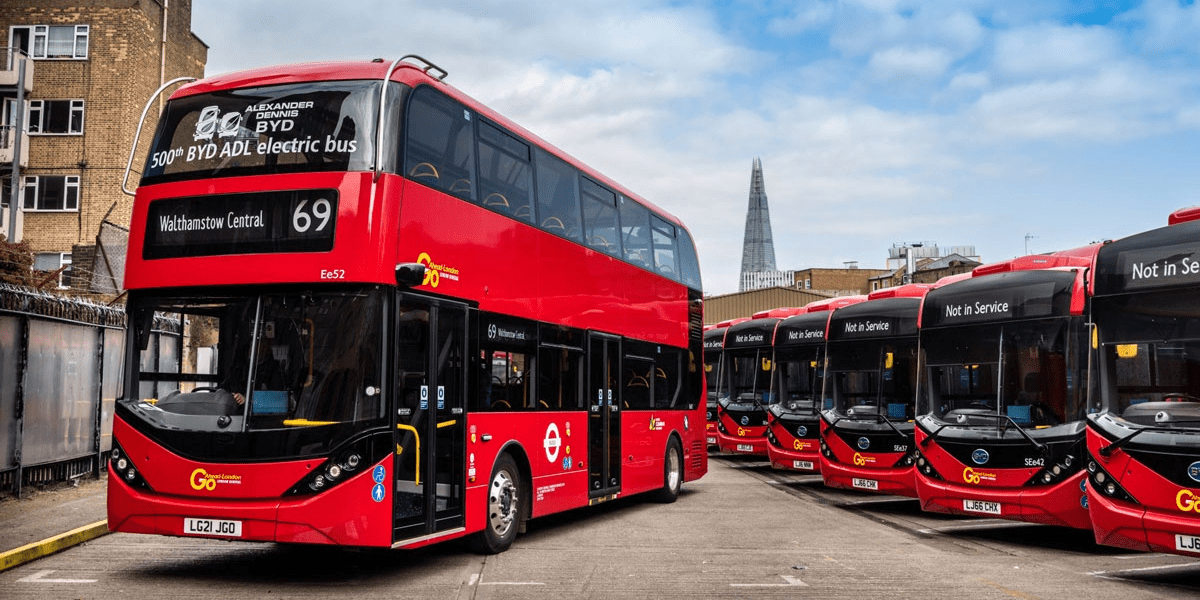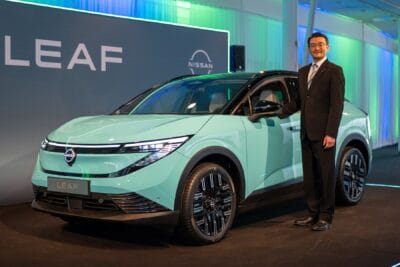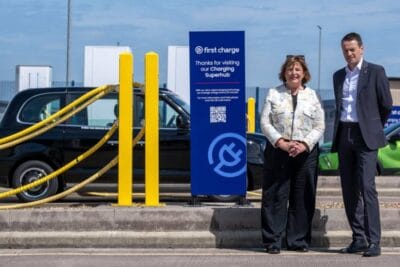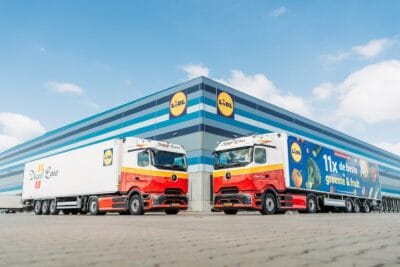ZEBRA: UK Gov’ funds nearly 1,000 zero-emission buses
The British Government, through its Zero Emission Bus Regional Areas (ZEBRA) scheme, has granted £198Mn to twelve towns and cities. The money will fund 943 battery-electric and hydrogen buses plus associated infrastructure and is the largest funding route to date.
The second instalment of ZEBRA is equivalent to €237Mn and much more than was spent earlier. The first round in November 2021 resulted in 335 zero-emission vehicles coming to towns in England as the DfT granted £71Mn.
In addition, Coventry reportedly became the UK’s first All-Electric Bus City with 300 electric buses with another 100 having come through previous schemes.
Today the Government also announced a further 600 zero-emission buses had been funded in Scotland, Wales and Northern Ireland. This brings the number of funded electric buses to the 2,000 vehicles mentioned above.
This means the Government has come halfway through its commitment to introduce 4,000 zero-emission buses by 2025 as part of a £3 billion fund (about €3.6Bn) announced by Boris Johnson to improve bus services in the national bus strategy published in 2020.
The strategy was to “introduce lower fares, helping drive down the cost of public transport even further for passengers,” said Transport Secretary Grant Shapps.
The news also includes a call to participate in a consultation on ending the sale of all new non-zero emission buses from 2025 to 2032. “Any new buses sold from that date would need to be fully zero-emission at the tailpipe, and the end of sales would apply across the whole of the UK”, so the statement. While this points to the inclusion of hybrid buses in a sales ban, opinions on the matter remain divided.
Current ZEBRA round
The largest successful bid in this second tranche is from Greater Manchester Combined Authority (GMCA). It will see DfT provide £36.9MN towards buying 170 battery-electric buses by early 2024. They will replace the current fleet operated by Stagecoach Manchester from its Stockport depot. The operator will build a new depot for the e-buses and is to invest £37.2Mn in the project. GMCA will provide £12.5Mn, bringing the total investment to £86.8 million or €103.5Mn.
Norfolk County Council placed the smallest bid, with ZEBRA awarding £3.3m towards 15 battery-electric single-deckers. They are slated to enter service in Norwich in Spring 2024. The operator will contribute £3.6m.
The West Midlands Combined Authority (WMCA) has handed in the only project involving hydrogen buses. They will receive £30m towards 124 hydrogen fuel cell electric buses.
Other successful bids came from North Yorkshire, Portsmouth, Blackpool, Nottingham, Hertfordshire, South Yorkshire, Oxfordshire, West Midlands, York, and West Yorkshire.
Stagecoach is involved in Manchester, Oxfordshire, and South Yorkshire. The company’s Chief Executive, Martin Griffiths, welcomed the initiative. He also said, “Stagecoach has already started its journey towards our target of a fully zero-emission UK bus fleet by 2035.”
Any manufacturer was named in today’s communications. However, the National Bus Strategy includes the call for the buses to be made in Britain to receive funding, leaving Wrightbus and ADL-BYD as the most likely suppliers and Optare.
Other bids were, however, not successful. The DfT turned down six out of 18 applications that proceeded to the business case submission stage. Liverpool City Region Combined Authority, Southampton City Council, Swindon Borough Council, Tees Valley Combined Authority, Transport North East and Worcestershire County Council have not received funding.
route-one.net, gov.uk (ZEBRA round 2), gov.uk (consultation to end sales of ICE buses)





0 Comments